Search Results
HuMEL: Learning Session on Outcome Measurement
Please join the HuMEL (Humanitarian Monitoring, Evaluation, and Learning) peer community for a peer-to-peer learning session on outcome measurement in humanitarian settings. This one-hour session is designed to promote cross-learning and spark new ideas around challenges to outcome monitoring in humanitarian contexts and the need to adapt programming based on outcome results. Participants will explore a few case scenarios together where outcome findings were surprising or unexpected and discuss ways to adapt and enhance programming based on these outcomes. You can learn more about the HuMEL peer community here. View Presentation Watch Recording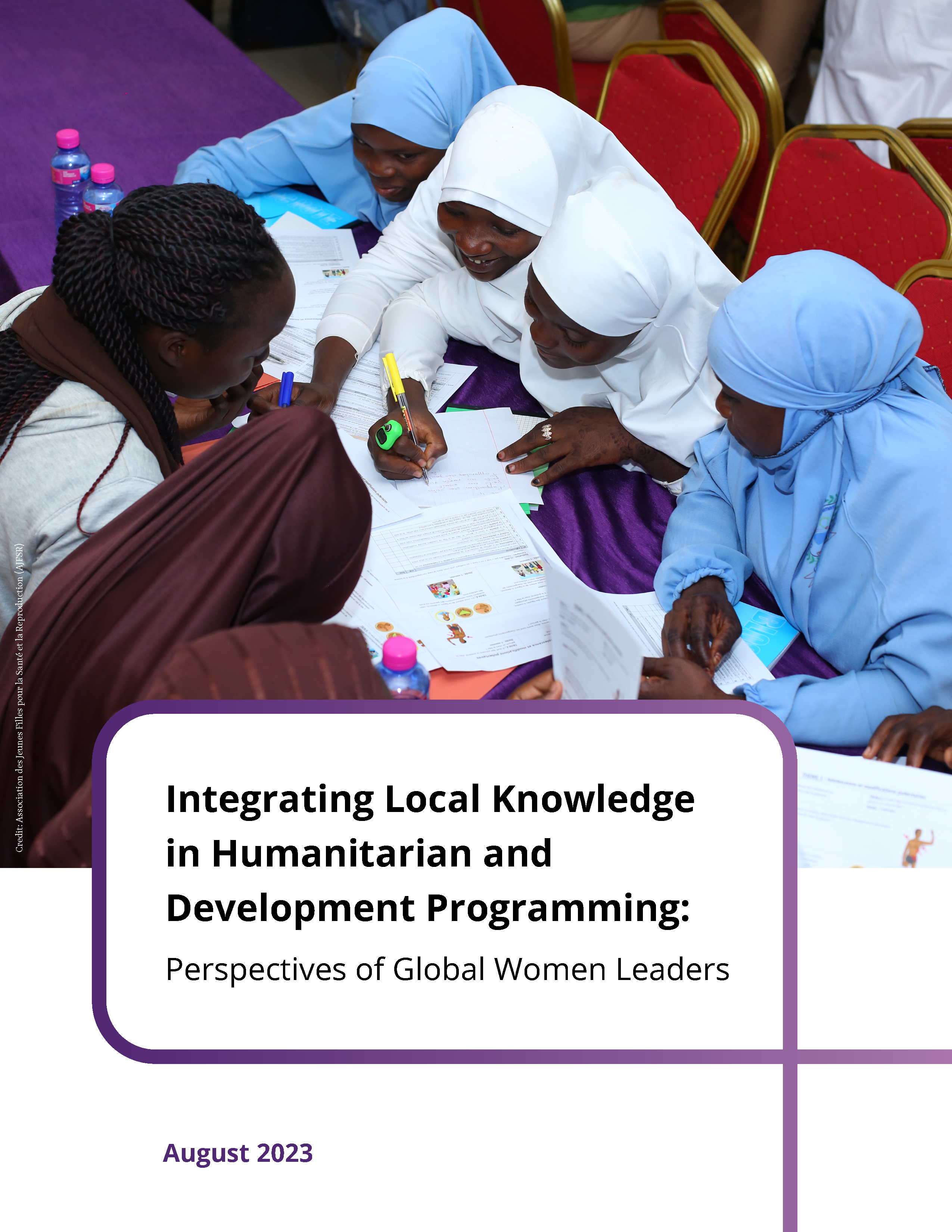
Integrating Local Knowledge in Humanitarian and Development Programming: Perspectives of Global Women Leaders
Authors:
CARE
Sector Type:
Gender, Youth, and Social Dynamics
Year Published:
2023
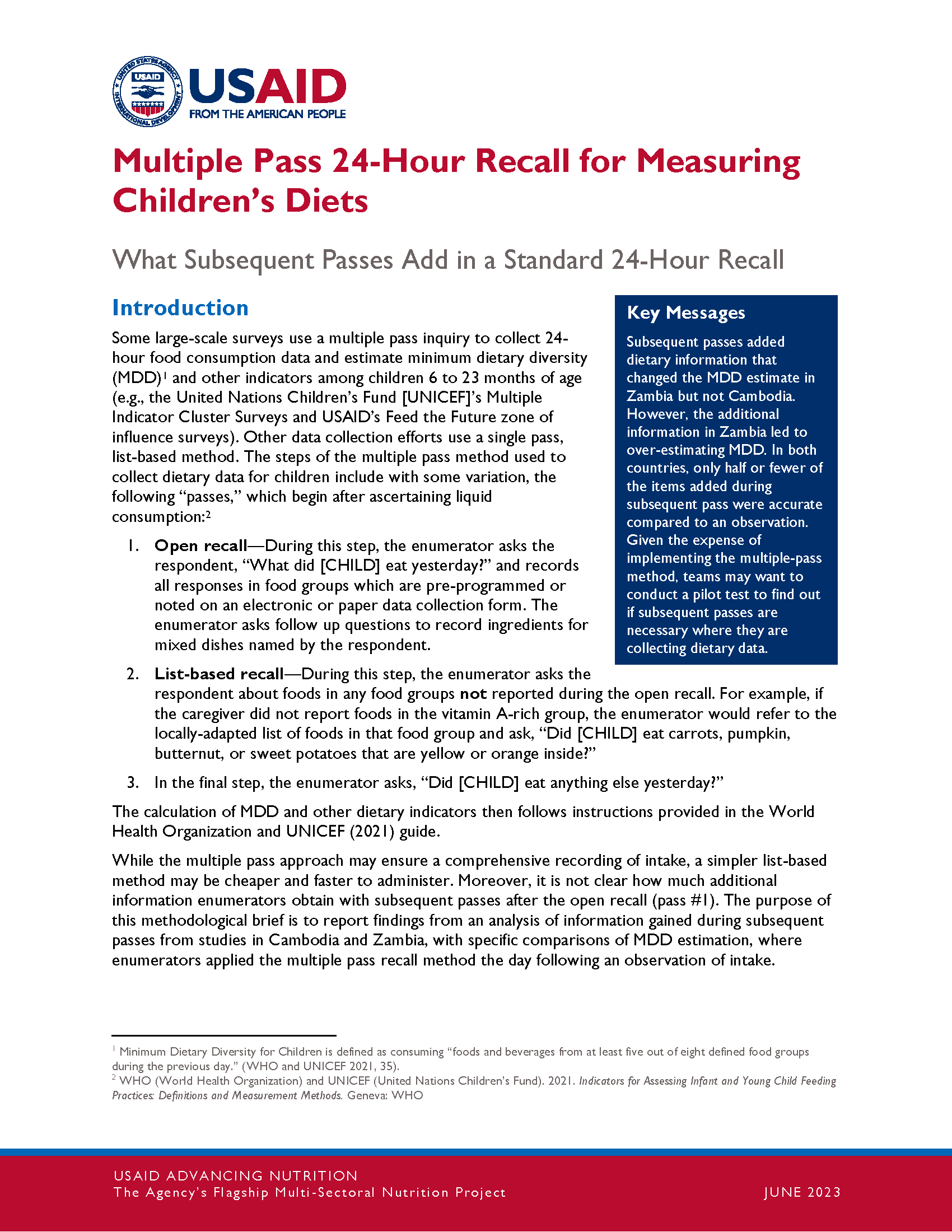
Multiple Pass 24-Hour Recall for Measuring Children’s Diets
Authors:
USAID Advancing Nutrition
Sector Type:
Gender, Youth, and Social Dynamics |
Maternal Child Health and Nutrition
Year Published:
2023
The U.S. Government’s Approach to Reducing Food Loss and Waste
Reducing food loss and waste requires the entire value chain to work together to achieve innovative solutions. This webinar will explore how USDA, EPA, FDA, and USAID collaborate through the Federal Interagency Food Loss and Waste Collaboration, working with external entities to leverage the private and non-governmental sectors to influence national and global change to reduce food loss and waste.Program Cycle Support Mid-Term Evaluation Consultancy
The Program Cycle Support (PCS) Associate Award is seeking proposals for a consultancy to conduct a mid-term evaluation (MTE) of the award. The general purpose of the MTE is to use findings to strengthen the design and implementation of PCS-led refine and implement (R&I) touchpoints to ensure the achievement of PCS’ goal to effectively support R&I resilience food security activities (RFSAs) to contextualize and adapt activity design and implementation. The MTE will cover the period of August 2020 through April 2023. It will assess the extent to which PCS has effectively supported RFSAs and BHA through an internal review of https://www.fsnnetwork.org/sites/default/files/2023-09/PCS-Mid-term-Review-Cons…Local Capacity Strengthening Policy Learning & Feedback Forum
One year after the launch of the Local Capacity Strengthening Policy, join USAID for the first Learning and Feedback Forum. The Learning and Feedback Forum is a six-day series of virtual events that will bring together local actors, global stakeholders in the development and humanitarian communities, and USAID staff to discuss the Local Capacity Strengthening Policy’s implementation progress and help guide future implementation. Participants will share lessons learned and good practices, access tools and resources, elevate successes, and communicate feedback on Policy implementation. Simultaneous interpretation will be available based on time zones, availability, and session design in Spanish, French, Arabic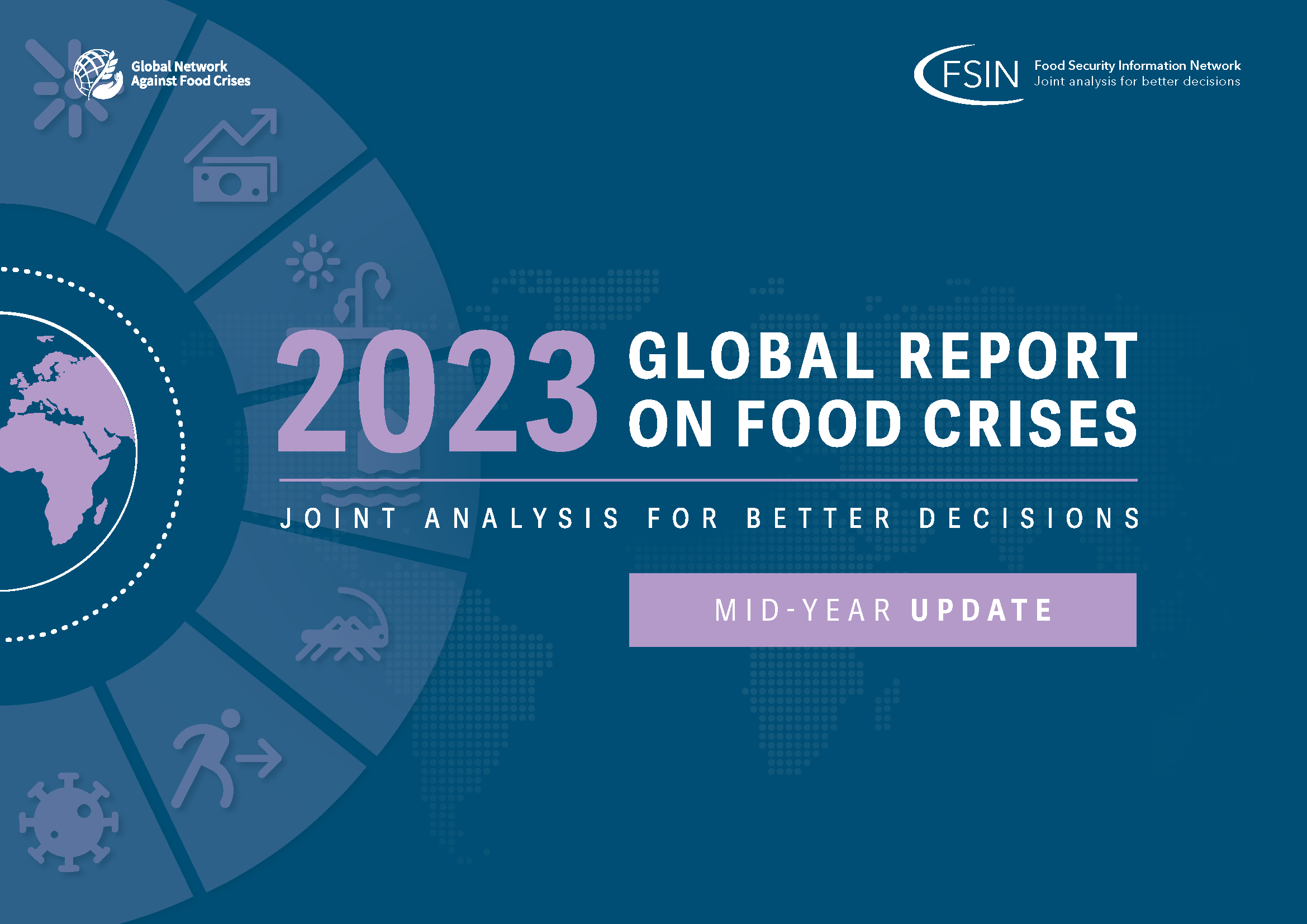
Global Report on Food Crises 2023 Mid-Year Update
Authors:
Food Security Information Network and Global Network Against Food Crises
Sector Type:
Monitoring and Evaluation |
Resilience and Disaster Risk Reduction |
Agriculture and Livelihoods |
Emergency Response
Year Published:
2023
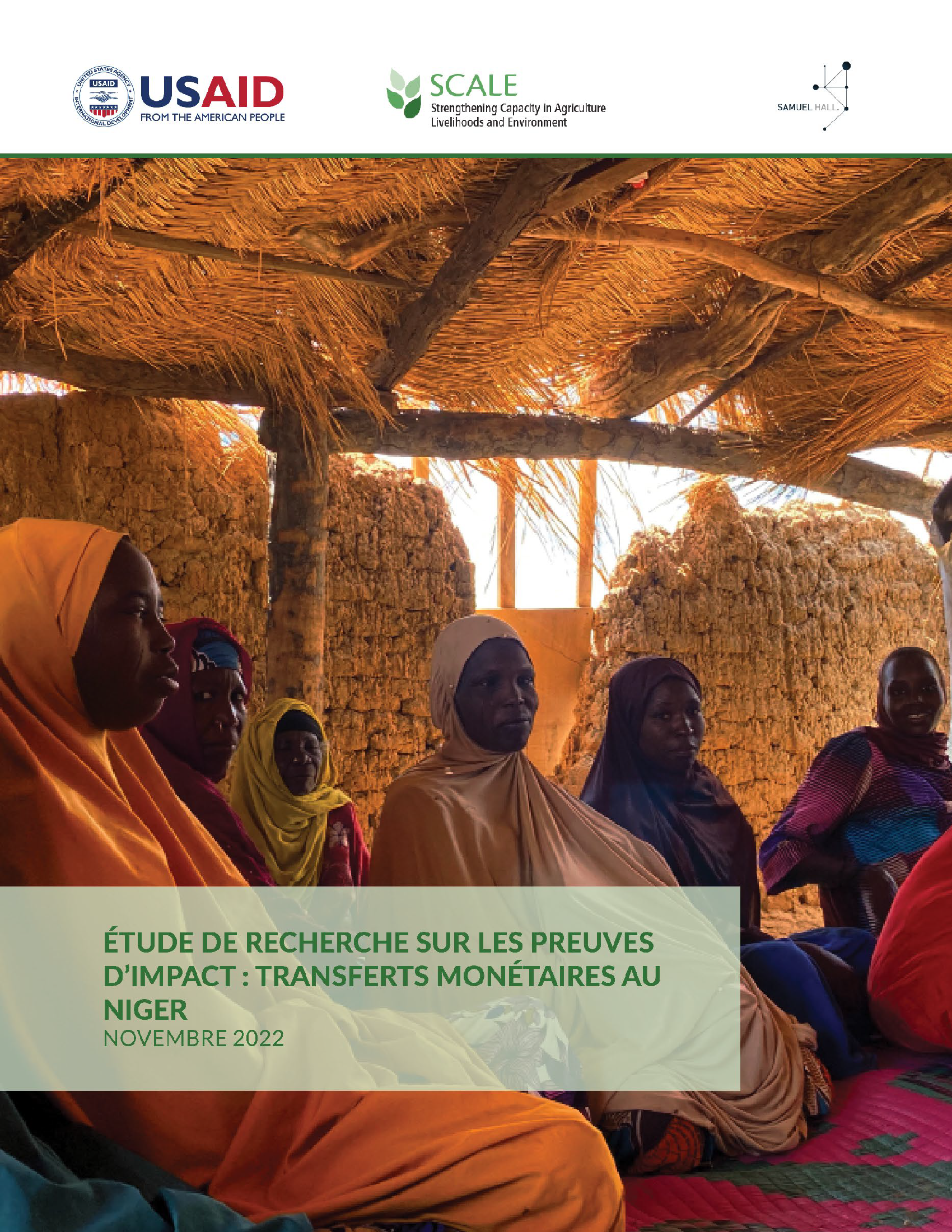
Étude de recherche sur les preuves d'impact : Transferts monétaires au Niger
Authors:
SCALE
Sector Type:
Agriculture and Livelihoods
Year Published:
2022
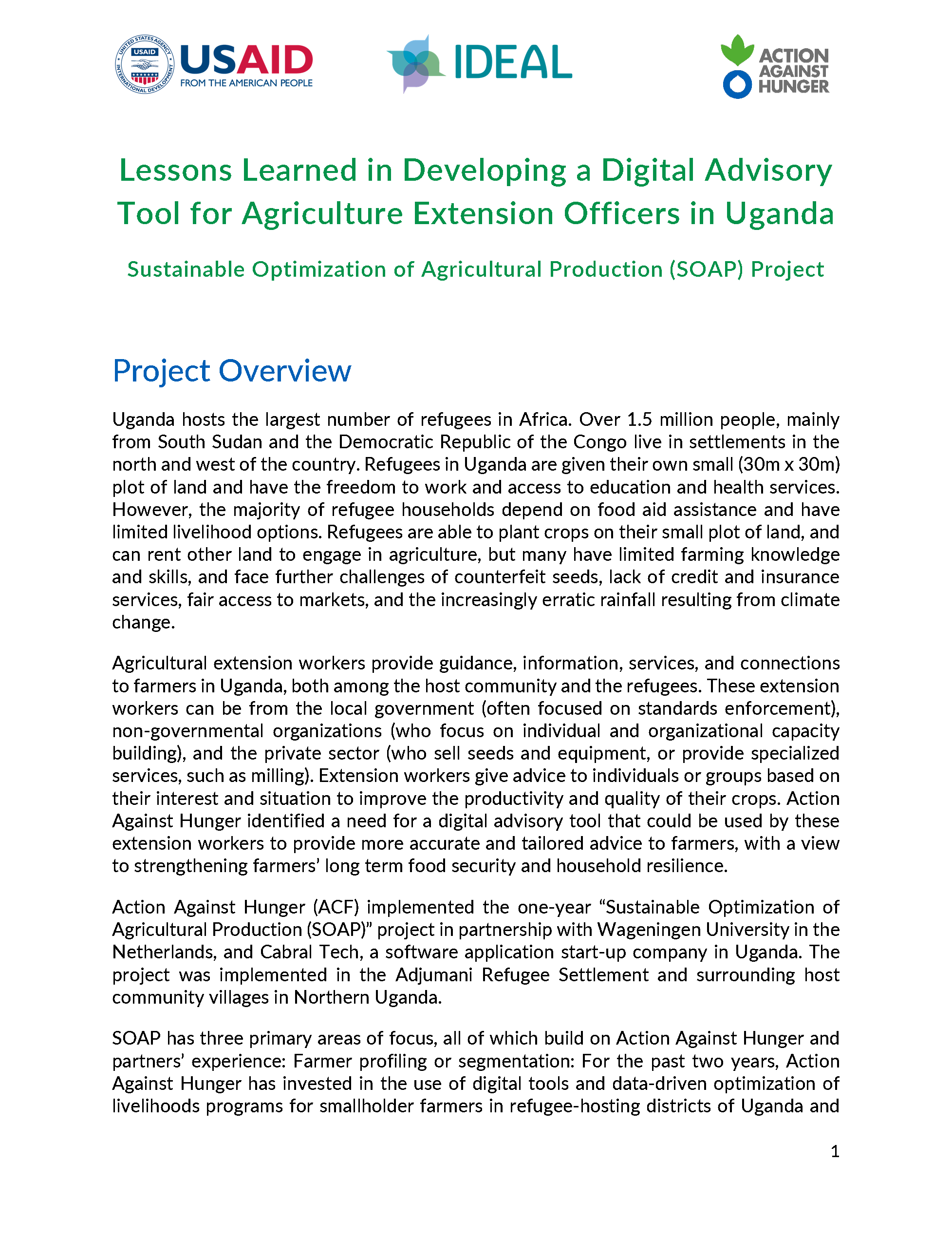
Lessons Learned in Developing a Digital Advisory Tool for Agriculture Extension Officers in Uganda
Authors:
Action Against Hunger
Sector Type:
Agriculture and Livelihoods
Year Published:
2023